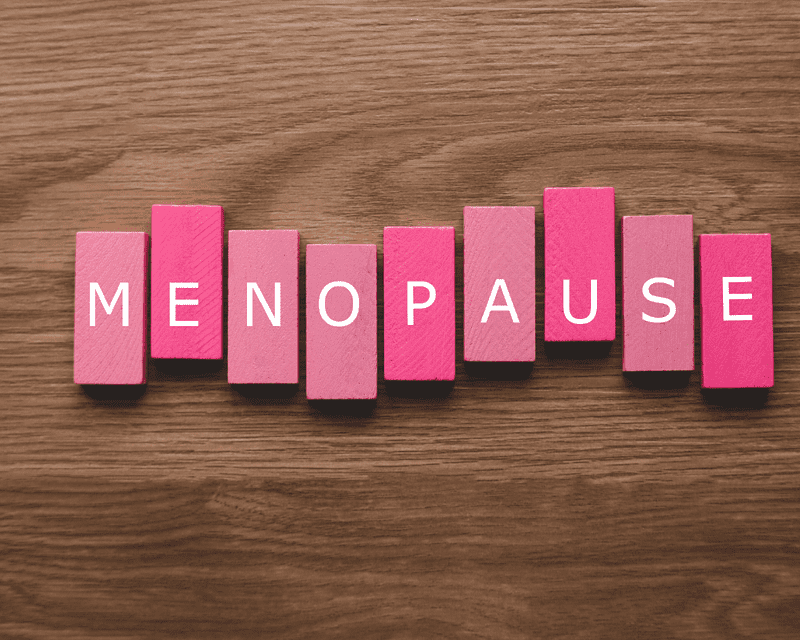Menopause affects each woman differently. As your body goes through it, you may notice various symptoms. For instance, some women may experience a sudden spike in their libido, while for others, it may be close to non-existent.
A low sex drive can be quite disruptive, especially if you’ve always enjoyed sex and don’t want to quit it. The good news is that the more you learn about the connection between menopause and low libido, the better you should be able to address your issues and find a possible solution. There are plenty of ways to improve sex after menopause, ease pain, and help you feel more comfortable in your body.

Continue reading the article below to learn more about how menopause affects you and what you can do to manage it better.
Menopause and Libido
Menopause is defined as the moment in a woman’s life when she stops menstruating. In the time leading up to it, it’s common to experience a wide range of physical and emotional changes that can be disruptive to many aspects of your life. The exact symptoms can vary depending on the individual and can include, but are not limited to:
- anxiety,
- issues with bladder control,
- sleep problems,
- weight gain,
- chills,
- hot flashes,
- night sweats,
- vaginal dryness.
Their severity can also vary greatly.
For instance, lubricants may be enough for some women dealing with vaginal dryness – a few pumps, and they’re up and ready to play with a new real-skin dildo. Still, others may find lubes insufficient and struggle with discomfort when having sex or masturbating. In such a case, it might be wise to check the toy shop for a smaller dildo or put toys aside altogether.
Aside from the lower libido, it’s also common and normal to have fewer sexual thoughts and fantasies. Physical changes can also affect the quality of your sex life.
How Sex Changes After Menopause
Undeniably, menopause can change a lot about your sex life. While you can work on it, it’s essential to remember that there’s nothing unnatural or wrong with losing interest in sex. In fact, if the low libido after menopause doesn’t bother you and you’re focused on different aspects of your life, you don’t have to seek any help.
Moreover, if you stay sexually active after menopause, bear in mind that there’s no right or wrong when it comes to how often you have sex. You can enjoy intimacy as many or as few times as you need and feel comfortable. Nevertheless, it’s recommended to use lubricants that can help ease the symptoms of vaginal dryness caused by fluctuations in hormone levels. You can also consider using sex toys that may help you get the most out of menopausal sex, such as clitoral vibrators, dilators, and kegel balls.
How to Improve Sex Drive During and After Menopause?

As long as it bothers you, the lack of interest in sex caused by either no sex drive or a low sex drive is considered by doctors to be a sexual disorder. However, since libido varies among people, it’s crucial to address such concerns by speaking to a medical professional about the issues with desire, orgasm, or pain if they trouble you.
Of course, sexual problems are hard to discuss, but it’s vital to be open about them when talking to your doctor. Depending on your particular issues, they may refer you to a counsellor or advise treatment. The professional you visit should be a specialist in the sexual dysfunction field, so make sure to check their reviews. You can attend counselling alone or go there with your partner.
Another possibility is hormone therapy, which can be particularly effective if the physical symptoms, such as dryness or shrinking of the vagina, affect your libido the most. Possible options include:
- Estrogen is a hormone associated with the female reproductive organs, which is available in different forms, including pills, patches, sprays, and gels.
- Testosterone can also prove helpful in some cases, even though it’s known as a male hormone. It’s essential to bear in mind that testosterone is not approved by the FDA for sexual dysfunction in women, and if it’s prescribed for this issue, it’s often in an “off-label” situation.
- Prasterone is sold in the US under the brand name Intrarosa. It’s a vaginal insert used to treat women dealing with painful intercourse caused by menopause. You use it nightly to ease the pain.
- Ospemifene, which you can find under the name Osphena. It comes in the form of a pill that you need to take daily. Just like prasterone, it can help relieve the pain you may feel during sex. However, ospemifene is not approved for breast cancer survivors and women who are at a high risk of developing it.
In Conclusion
As you can see, menopause can have a significant effect on your libido. Still, it’s a natural process that all women go through once they reach a certain age. There’s no reason to be worried about it. Instead, it’s essential to educate yourself about the symptoms and the ways to deal with them.
The exact experience with menopause is different for every woman. That’s why addressing menopause-related issues is vital, especially if they’re disruptive to your daily life. Since the menopausal transition can last even up to a few years, you can consult a doctor and seek treatment or introduce various lifestyle changes to your routine.

